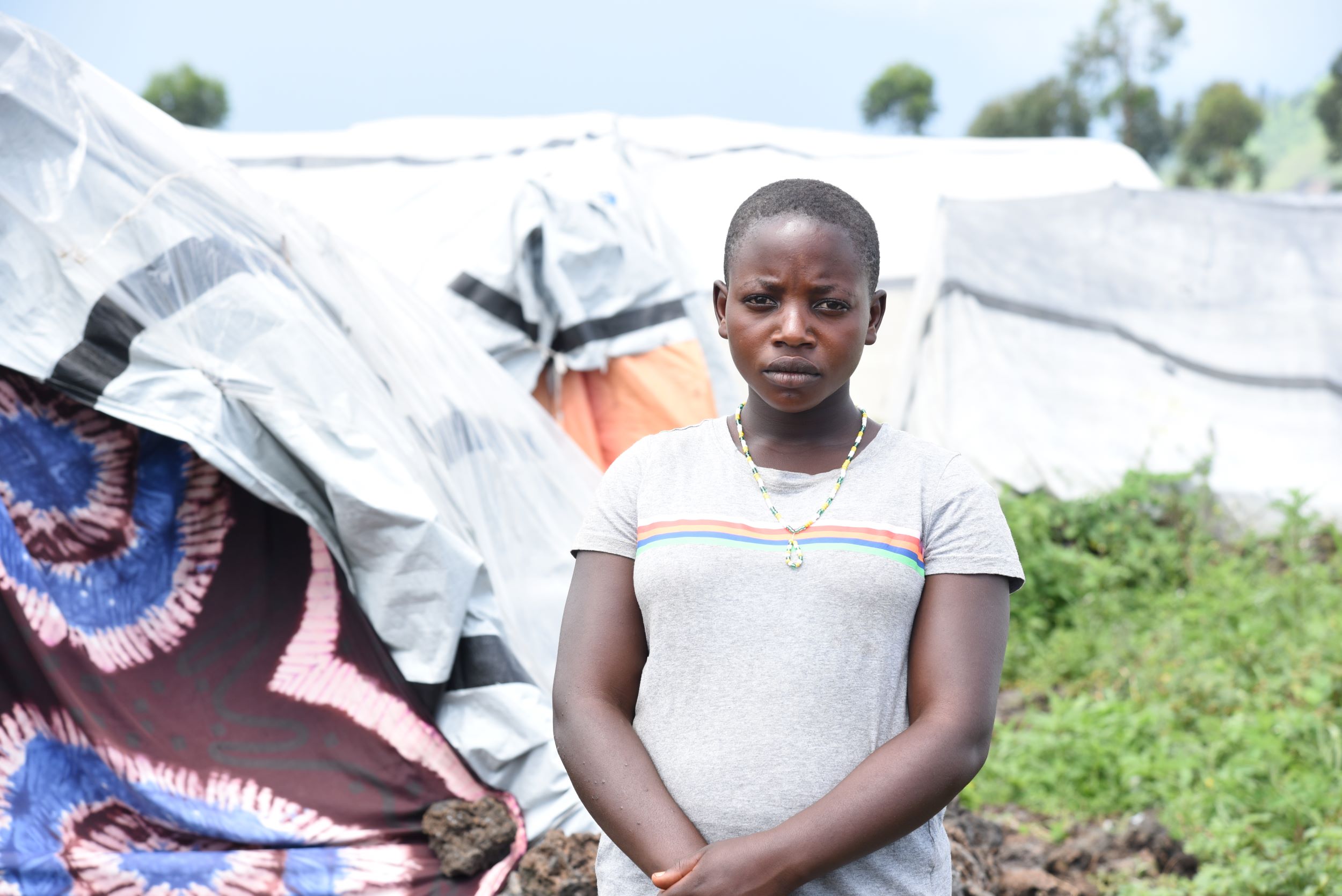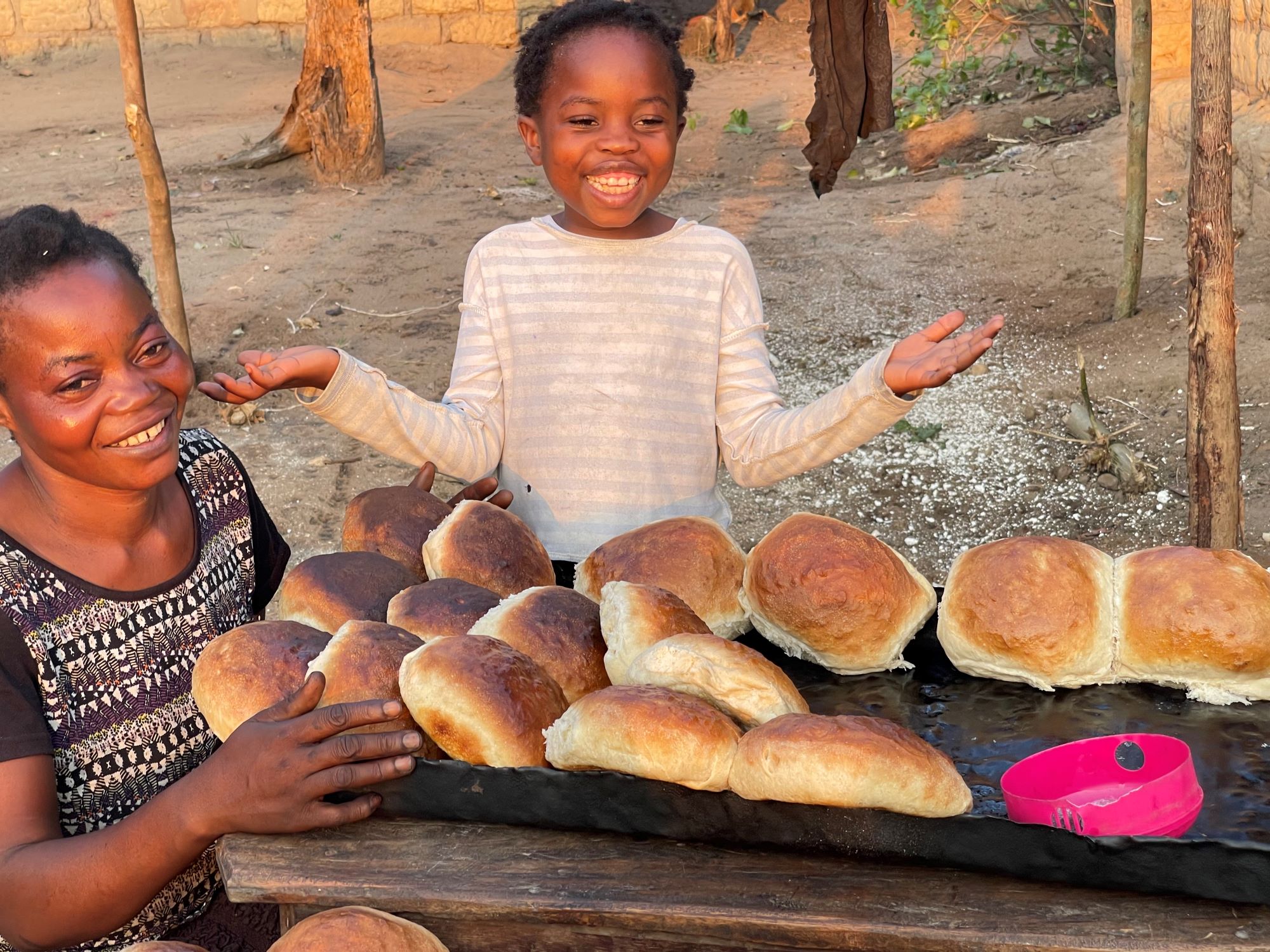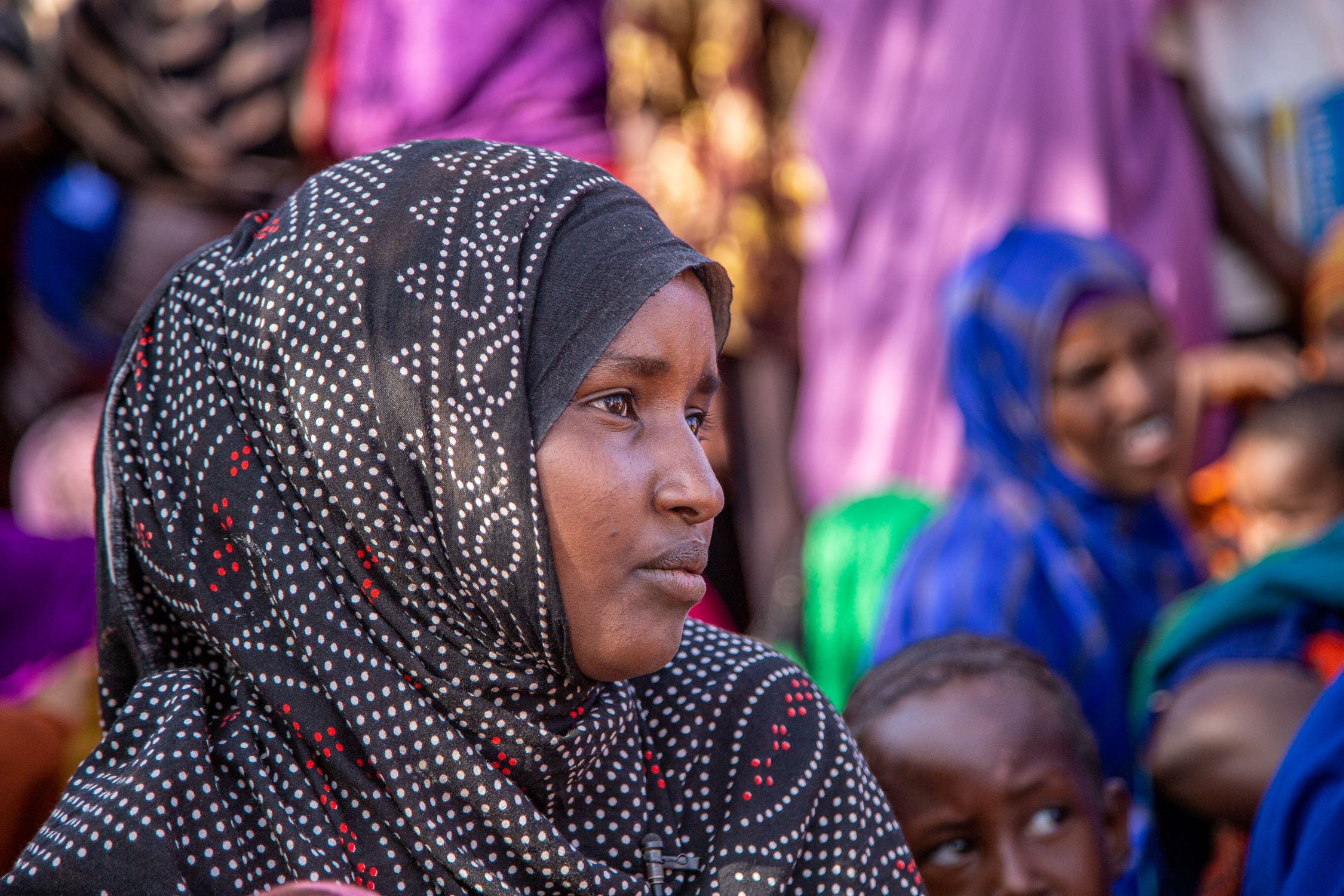
How hunger impacts children in the DRC
Two teenagers, Esther and David, have been forced to step into adult shoes
Across the world, conflict, disaster and climate change are driving hunger and food insecurity to critical levels. As a consequence, children are often forced into adult roles – when they should be enjoying carefree childhoods and getting a good education.
“My life has changed because we used to eat three times a day, but now we only eat when someone comes to help us," says Esther*, 15.
Esther lives in the Democratic Republic of Congo (DRC) in central Africa.
Although it is a country filled with natural resources, arable land, and the world’s second largest rainforest, few have benefited from this wealth. Instead, conflict and disasters – made worse by climate change – have made life challenging for many of the 100 million plus population.
Today, the DRC is one of the five poorest nations in the world, where more than 60% of people live on less than $2.15 a day.
READ MORE: 10 facts about the DRC
*Name changed to protect her identity

Esther's story
She’s only a teenager but Esther bears the responsibility of a mother.
When fighting broke out near their home in DRC last year, Esther fled with her mum, brothers and sister. Tragically, her mum was killed.
"It was the night the war started,” Esther recounts, “the sound of light and heavy guns could be heard from every corner.
“At sunrise, Mum and I set off with the little ones. After a few kilometres of running away on foot, a bullet hit Mum and she fell to the ground. Given the danger, I decided to continue on the road with the children and leave Mum's body behind. I was crying and it was too hard for me."
Esther needed to get her siblings – Ezekia, eight, Shadrack, six, and Miujiza, two – to a place of safety. It was dangerous and she didn’t want anyone to get lost, so she tied a rope to each of them.
It took two days for the siblings to reach the safety of a displacement camp where they had to rely on the kindness of strangers for food.
Dreams replaced with fear
Before the war, Esther was in school and she had her own small business selling agricultural produce. Today, feeding and taking care of her brothers and sister takes priority over studies. While she once dreamt of becoming a driver, now she prays for enough food and for peace. Her greatest fear is not being able to take care of her siblings.
The family have been living in the camp for a year now, and although Esther still struggles to sleep at night due to the trauma she experienced, she has found solace in a friendship with a girl of similar age and her mother.
Her story is a testament of courage and resilience in the face of adversity – the kind no child should have to face. Despite everything, she’s determined to provide for her siblings and create a better future.
And while Esther seeks to build this better future, she has support from World Vision, in partnership with the World Food Programme. This comes in the form of essentials like food, cash vouchers, clean water and sanitation, as well as psychosocial support.
Thanks to generous supporters like you, World Vision is helping families provide life-saving food to their children around the world through the ENOUGH campaign.

David's story
David has a different story. He lives in another part of DRC, away from the fighting, but he has also been made to grow up too soon.
In his father's shoes
At 14, David is the eldest of five children, living with his mum, brother and three sisters. When his father abandoned the family in 2022, David was forced to leave school and work in a quarry. The money he brought home was the only source of income for his family. Without it, they wouldn’t have had enough to eat.
"I used to get up at 6 o'clock and go to the quarry. I had to find a good spot and spend the whole day breaking stones with my club, in the dust. At the end of the day, I could fill five bags, which were sold individually for 2,000 Congolese francs ($0.82). Sometimes I could sell five bags in a day and earn 10,000 Congolese francs ($4.09)," he explains.
READ MORE: What are the effects of child hunger?
Escaping child labour
Dropping out of school and taking on a back-breaking job was one of the worst experiences David had ever had. Exposed to adverse weather conditions and other dangers, he remembers all that he faced alongside the other children working in the mines.
"When I got home, my whole body ached and I had to go back the next day. It was very sad, the bags were so heavy. The money was barely enough to feed ourselves. Children were getting sick all the time," he shares.
This was not what David’s mum, Mireille, wanted for him, but a local belief about women causing misfortune at the quarry prevented her from working at the site.
However, this was not the end. With support from World Vision, David was able to stop working and return to school and begin catching up. He now dreams of completing his studies so he can find a good job and look after his family.
READ MORE: How World Vision is ending child labour
We're saying enough to hunger
Children like Esther and David shouldn’t have to worry about feeding their families. Yet they do.
This isn’t good enough.
That’s why, as part of our ENOUGH campaign, the World Vision partnership is globally pledging US$3.5 billion dollars over the next three years towards ending child hunger and malnutrition.
In DRC, we continue to prioritise the provision of humanitarian aid to those displaced by conflict. Last year, World Vision reached almost 2 million people – 1.2 million of them children – with food, cash vouchers, water, sanitation and more.
Our vision is for every child to have life in all its fullness, including Esther and David. With your support, we can help children overcome hunger and malnutrition in the world's hardest places.



